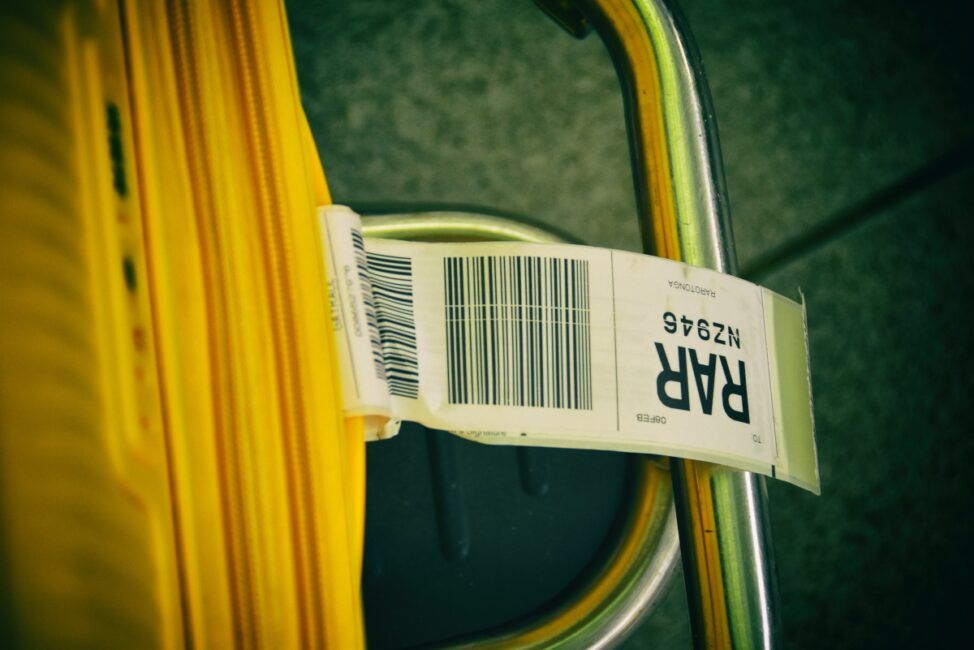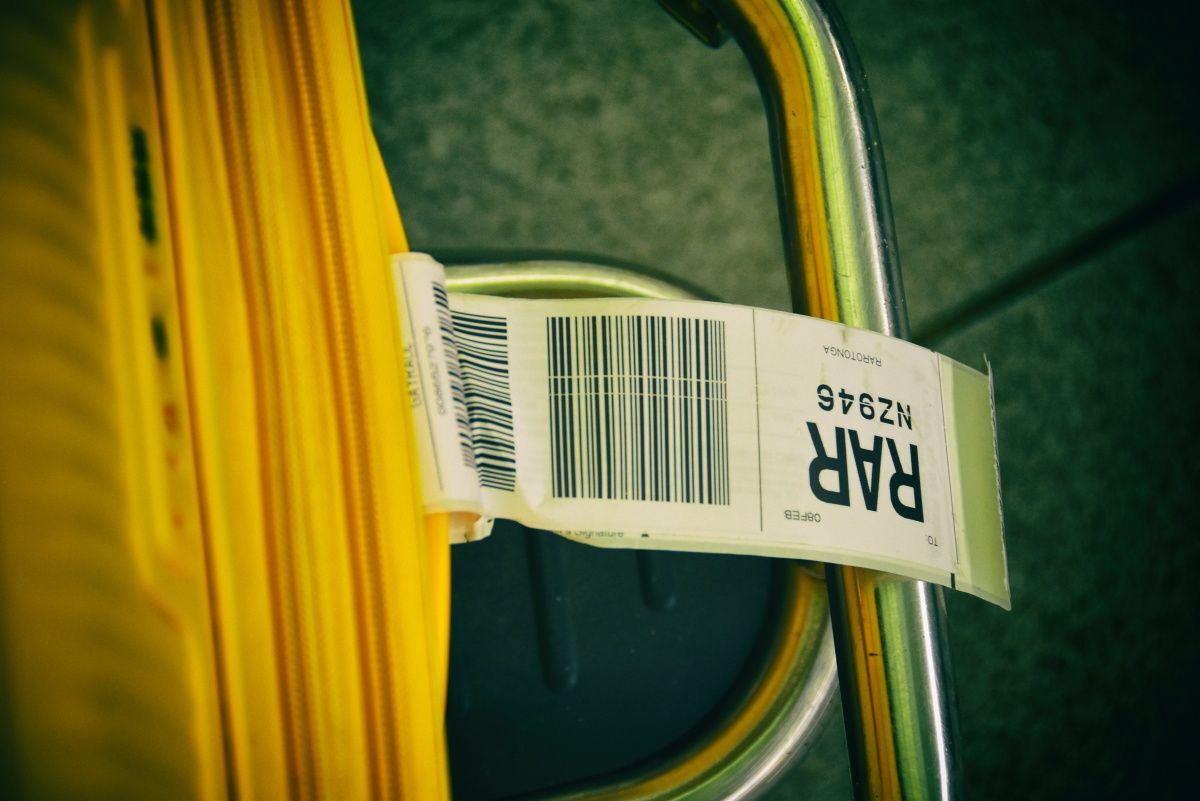A Guide to Biosecurity and Customs Declarations in the Cook Islands
The Cook Islands’ borders have strict rules on what visitors can bring into the country. The majority of restricted or prohibited goods are those which pose a threat to the health and biosecurity of the country. For this reason, it’s best to be mindful about what you pack in your luggage and, more importantly, know what to declare when arriving in Rarotonga.
What Does “Declaring” Mean?
The guide below will go over the most common examples of things that you will need to declare to Customs and Biosecurity when arriving in the Cook Islands. Declaring is done through the Cook Islands Passenger Arrival Card, which is given to you to complete during your flight. You can also declare verbally when you are passing through Customs and Biosecurity on arrival.
For a complete guide on the Customs and Biosecurity formalities, head to Arriving in Rarotonga: Airport Customs, Biosecurity & the Arrival Process.
What Happens if You Have Risk Goods?
The most important thing to remember when arriving in Rarotonga and the Cook Islands is to: Declare, Declare, Declare! If you are unsure whether you need to declare something or not, declare it anyway. You will not face penalties for declaring something you didn’t need to. You are likely to face penalties for not declaring something you did.
Disposing of Risk Items Before Passing Through Biosecurity
Biosecurity amnesty bins are available at Rarotonga International Airport before passing through Customs and Biosecurity so that you can dispose of any declarable or risk items that you have not declared on your Passenger Arrival Card. Dispose of any potential risk items that you have not declared into these bins. Ask a Customs or Biosecurity Officer for advice if you are unsure.
What Happens to Undeclared Risk Items?
When passing through Biosecurity, if any restricted, prohibited or declarable items are found in your luggage or in your possession that you have not declared on your Passenger Arrival Card, you may face penalties.
What if You Declare an Item and it is Prohibited or Restricted?
If you have declared an item that is deemed unsafe to enter the country, then you may have the item confiscated. You may be given the option for treatment of the item or exported to an overseas address, both at your own expense. For goods that you have to pay duty tax on, you’ll need to pay the duty and complete the relevant Customs forms.
Declaring Food When Arriving in Rarotonga
You must declare all food that you are bringing into Rarotonga and the Cook Islands. No matter what type of food it is, whether it’s cooked, uncooked, fresh, preserved, packaged or dried, you should declare it anyway. While some foods are allowed to pass through the border, many foods will be inspected and dealt with accordingly. Food that is considered a risk item will be inspected and likely destroyed if it is deemed unsafe.
For a list of food that you can and cannot bring into the Cook Islands, check out our guide, Taking Food to Rarotonga & the Cook Islands: What You Need to Know.
Declaring Animals and Animal Products
Any kind of animal, including reptiles, birds, aquatic life, etc. must be declared. Live animals must have a permit from the Cook Islands Ministry of Agriculture.
On top of that, any animal products must be declared. Animal products refer to (but are not limited to):
- Meat
- Dairy products
- Fish
- Honey
- Bee products
- Eggs
- Feathers
- Shells
- Raw wool
- Skins
- Bones
- Insects.
Some of these items, such as animal skin items, features and shells require some or need to be checked for treatment before being allowed to pass through the border.
Declaring Plants and Plant Products
All plants and plant materials must also be declared when arriving in Rarotonga and the Cook Islands. Some plant products will either need to be treated, need a permit or are strictly prohibited.
Examples of plant products that you need to declare are (but are not limited to):
- Dried flowers
- Straw or corn souvenirs
- Fresh cut flowers and foliage
- Items made of bamboo, cane, rattan, straw or wood.
Sporting and Outdoors Equipment to Declare
There are also other declarable items that don’t fall into the above categories, including biological items, camping, sports and farming gear. Some of these items may be a carrier of pests and diseases. While things like camping and sports gear are allowed to pass through Biosecurity, they may need to go through an inspection first. Make sure you clean all gear thoroughly before packing them for the Cook Islands.
Other declarable items include:
- Medicines that are not prescribed to you
- Animal medicines
- Biological cultures
- Organisms
- Soil
- Water
- Equipment used with animals, plants or water, including beekeeping, fishing, watersports or diving activities
- Outdoor sports or hiking footwear
- Tents
- Other articles that may have soil attached.
Declaring Goods Subject to Duty
Travellers to the Cook Islands must also declare any goods that might be subject to duty tax. This includes goods that are over the Cook Islands’ duty-free allowance. Questions concerning duty are asked on the Passenger Arrival Card. The items that might be subject to duty include:
Personal Items
Your personal items, such as clothing, clothing, footwear and articles of personal hygiene and grooming, etc. are free of duty as long as you own them at the time of arriving in the Cook Islands and they are for your own personal use. The items in your luggage must be what a passenger would reasonably be expected to have in their bags.
Alcohol and Tabacco
You may bring alcohol and tobacco into the Cook Islands as long as the traveller is no younger than 18 years old.
There are also allowances on the amount of alcohol and tobacco you can bring into the Cook Islands, which are as follows:
- Wine not exceeding 2 litres (67.6oz) or Spirits/liqueurs not exceeding 2 litres (67.6oz) or a mixture of wine, spirits and/or liqueurs not exceeding 2 litres (67.6oz) or beer not exceeding 4.5 litres (152oz)
- Cigarettes not exceeding 200 or Cigars not exceeding 50 or Tobacco not exceeding 250 grams (8.8oz) or a mixture not exceeding 250 grams (8.8oz) in total.
See The Duty-Free Allowances for Rarotonga & the Cook Islands for more information.
Other Dutiable Goods
You may bring other dutiable goods purchased from overseas into the Cook Islands, such as gifts, souvenirs, electronic equipment, jewellery, watches and sporting equipment, as long as their value does not exceed NZ$750. The goods must be with you and intended for personal use.
See The Duty-Free Allowances for Rarotonga & the Cook Islands for more information.
Currency
If you are in possession of NZ$10,000 or more in cash, negotiable instruments, pearls or the foreign equivalent then this needs to be declared. You will need to fill out the appropriate currency reporting form at Customs. The currency reporting form can be found at the bottom of this page on the financial supervisory commission website.
Prohibited and Restricted Imports (What You Can’t Bring into the Cook Islands)
Finally, there are some goods that are strictly prohibited from being imported into the Cook Islands, as well as goods that are restricted (i.e. need a permit).
Prohibited Goods
- Weapons and ammunition
- Fireworks
- Indecent publications
- Endangered species of flora or fauna
- Illicit drugs
- Drug paraphernalia.
Restricted Goods
There is a wide range of restricted goods for bringing into the Cook Islands, including fruit, meat, vegetables, animal products and plant products. Although you may be able to bring some of these items into the Cook Islands, you must hold the relevant certification and/or import permit. See a complete list of restricted import goods on this page of the Ministry of Agriculture website.
More on What to Declare When Arriving in Rarotonga and the Cook Islands
That’s it for our guide on what to declare when arriving in Rarotonga and the Cook Islands. For more advice, check out the following guides about Customs and Biosecurity:
- Arriving in Rarotonga: Airport Customs, Biosecurity & the Arrival Process
- Cook Islands Passenger Arrival Card: What You Need to Know
- The Duty-Free Allowances for Rarotonga & the Cook Islands
Finally, make the process of arriving in the Cook Islands as smooth as possible following our Arriving at Rarotonga Airport, Cook Islands: A Step-by-Step Guide.
Author
Laura S.
This article was reviewed and published by Laura, editor-in-chief and co-founder of Cook Islands Pocket Guide. Since arriving solo in the South Pacific over 10 years ago with nothing but a backpack and a background in journalism, her mission has been to show the world how easy (and awesome) it is to explore a paradise such as the Cook Islands. She knows the islands inside out and loves sharing tips on how best to experience Raro’s must-dos and hidden gems. Laura is also the editor of several other South Pacific travel guides.

